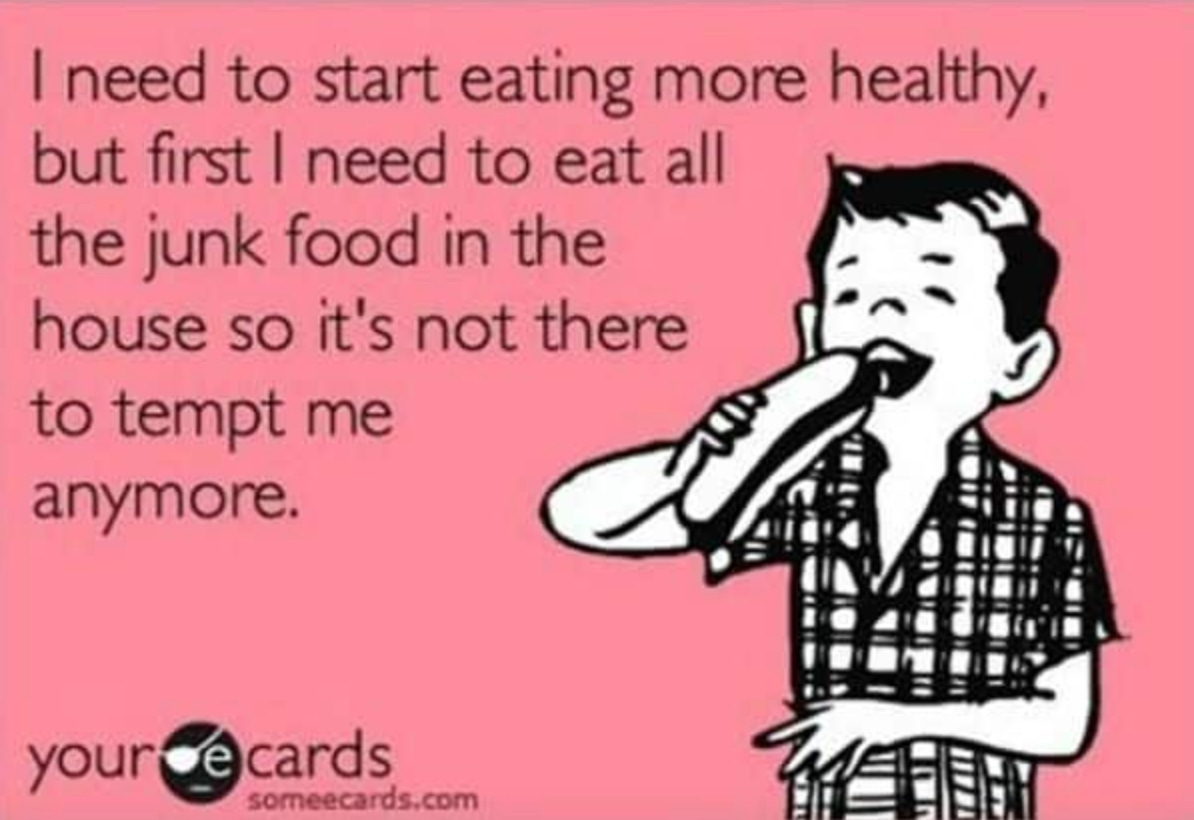A Few Resolutions That Will Pay Off Big Time in 2021
Hey, 2020, don't let the door hit you on the way out.
Happy New Year, Pausers! 🥳
As we welcome in the new year, it’s traditional for every women’s magazine, website and whatnot to offer up tips for making this your BEST YEAR EVER.
Excuse us while we roll our eyes.
How about we just aim to take this moment for what it is: an opportunity to look back, look forward and look internally to choose the changes we want to make for ourselves, both big and small.
If you need some inspiration, here are a few resolutions to consider that will give you the most bang for your buck.
Put down the wine glass.
It helps your whole body, right down to your DNA.
Granted, a small amount of wine or alcohol may lower your risk of dying from heart disease — and granted, many of us have leaned into our nightly wine time to cope with all things 2020.
But with the new year starting, consider that drinking too much alcohol can:
Raise your blood pressure, increase your levels of triglycerides (fats in the blood), and lead to a higher risk of heart attack and stroke.
Affect your brain’s function, interfering with its communication pathways. It can also be harmful to your liver and lead to fatty liver, cirrhosis and other problems.
Raise your risk of certain cancers, including breast, mouth, throat and esophageal.
Contribute to obesity and raise the risk of developing diabetes.
Interfere with the quality of your sleep, disrupting the sleep cycle and causing restlessness and frequent wakings.
Pet a dog.
Dog lovers/owners are less lonely and live longer.
Petting a dog can lower your blood pressure and decrease your risk of cardiovascular disease.
Just the act of petting a dog (even if it’s not real) can help quell anxiety and depression and lower stress.
Experts say that just 10 minutes of petting a dog is enough to reduce cortisol, a major stress hormone. (That’s why therapy dogs are used throughout hospitals, nursing homes, etc.)
Quit smoking.
Positive changes can occur in as little as one hour after you quit.
Smoking affects your vision, the health of your mouth and skin, your heart, lungs and even your immune system.
Within just one hour of quitting, your blood pressure drops and your heart rate drops and returns to normal. Your circulation also begins to improve.
Just 12 hours after quitting, your body rids itself of harmful carbon monoxide (found in cigarette smoke).
It can help return your white blood cell count to normal and improve blood flow to wounds. It can also prevent new DNA damage from occurring and may even repair damage that’s already been done, helping to lower your cancer risk.
Not smoking will make you be better equipped to fight off colds and infections. That’s partially due to the cilia — the small hairs in your trachea that keep air passages clean — which can begin to regenerate and heal.
Within nine months of quitting, your lungs can significantly heal themselves. After one year, your risk for heart disease is cut in half, and it becomes the equivalent of a non-smoker’s after 15 years.

Exercise more.
Any activity is better than none.
Exercise burns calories — and burning calories helps prevent excess weight gain.
Exercise helps lower your risk of heart disease by preventing high blood pressure, boosting HDL cholesterol and decreasing unhealthy triglycerides.
Moving more helps manage depression, anxiety, arthritis and many types of cancer.
Exercise can help prevent falls, plus boost cognitive function.
Exercise can boost your energy levels by delivering nutrients and oxygen to your tissues.
Exercise helps you sleep better: Regular physical activity can help you fall asleep faster and improve the quality of your sleep.
Adding strength and resistance training to your regimen also can help maintain strong bones and prevent sarcopenia, a loss of muscle tissue that’s part of the natural aging process.
Manage stress better.
Always and forever, amen.
When you’re stressed, your body is put at high alert, which over time can lead to chronic health problems like headaches, heart problems, high blood pressure, upset stomach, sleeping issues, muscle tension, weight gain or loss and more.
Many techniques can help lower stress and promote inner calm; try meditation, yoga, psychotherapy, tai chi, qigong, exercise, deep breathing and guided imagery.
Practical lifestyle tools to manage stress can also help. These include planning ahead, noticing when you feel stressed, talking to friends and family and taking time to relax.
For a Pause…
You’re more likely to succeed in your resolutions if you believe in yourself. People who really think they can “just do it” are 10 times more likely to make promises to themselves that stick, reports CNN.
Curious as to what the rest of us are resolving for the new year? Here are America’s top resolutions from one poll. Losing weight, ✔️.
Got 11 minutes? Sure you do. Here’s what this much exercise can do to improve your life.
If one of your resolutions is to exercise more, here’s one of Sheryl’s favorite non-impact, compact, heart-pumping, calorie-torching ways to work out at home. (Jennifer is a Pilates girl.)
One More Thing
Now, that’s just common sense.
Until next week, stay well. Stay healthy. Stay safe.
See you next time!
xoSheryl&Jennifer
All is quiet on New Year's Day
A world in white gets underway
I want to be with you
Be with you, night and day
Nothing changes on New Year's Day
— New Year’s Day, U2
Know someone who could use a Pause? Why not share us with them? Thanks so much!



